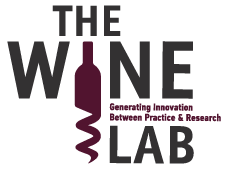Positive points
- It is a new and promising productive activity which is subsidized by the European Support Fund through the new Common agricultural policy 2013-2020, which practically means that there is room for investment in organic wine. At the same time, there is widespread interest from European markets. At the same time, there is a wide interest in European markets. There is a high demand for organic products in the markets of Germany, France, Great Britain, Switzerland, and Denmark.
- According to the job gr, Greece has a comparative advantage both in the growth of organic production and in the export segment, as it can play a leading role in international markets.
- The family character and local varieties are advantages in differentiation and positioning of Greek vine-wine products in relation to the competition both in the domestic and international market.
Negative points
- The existence of high competition, since in Greece there are many small winemaking units of family character which will try individually to produce organic wines.
- The additional cultivation care required in the production of organic grapes and the lack of basic chemical elements in vinification may increase the final price, which will make the product uncompetitive given the massive supply of organic wines imported mainly from large chain stores.
The difficulty of finding a qualitative biological raw material due to reduced production but also because of the increased risks that may arise during the organic cultivation of the vine
SWOT analysis (strengths, weaknesses, opportunities, threats)
- A. Recording of the strong points of the Greek winemaking company (internal factors)
Production of high-quality wines based exclusively on organically cultivated grapes.
Production of quality and distinct wine products, of local and family character, preferred by consumers
Diversity and differentiation based on quality
- B. Recording of the weak points of the Greek winemaking company (internal factors).
Insufficient staffing and specialization due to lack of experience in organic wine production
Low sales in the domestic market and inability to increase production due to small family-owned wineries
Lower budget for promotional activities in relation to competition and inability to support the product against the large wine-making units of competition
Insufficient consumer knowledge of the advantages of organic wine versus classic. Absence of economies of scale.
- C. Recording of the company’s threats (external factors)
Unstable financial environment, especially in Greece due to the economic crisis
Direct dependence on weather phenomena
The largest part of the market abroad is covered by low-cost wines mainly from “New World” countries.
- D. Recording of the Company’s opportunities (external factors)
A rise in demand for organic wines
Improvement of the image of Greek wine abroad
Creation of niche-markets with consumers who prefer exclusively organic wines.
